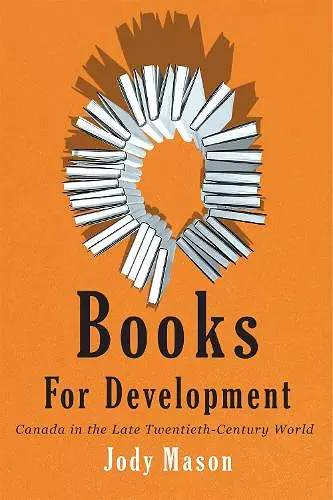Books for Development
Canada in the Late Twentieth-Century World
Format:Paperback
Publisher:McGill-Queen's University Press
Publishing:17th Feb '26
£28.80 was £32.00
This title is due to be published on 17th February, and will be despatched as soon as possible.

How the book came to function as a key representative of Canadian settler exceptionalism.
Books for Development analyzes how governmental and non-governmental actors deployed books as instruments of development between 1945 and 1970 as a way to express solidarity with newly decolonized nations, to argue for the importance of Canadian leadership internationally, and to secure settler-liberal rule at home.
Canadian book culture has served, in both domestic and international contexts, to underpin a moralizing rhetoric of enlightened liberal tolerance for difference. Between 1945 and the end of the 1970s the book – as object, as symbol, as idea – was used within the context of the development paradigm to express solidarity with newly decolonized nations, to argue for the importance of Canadian leadership in the new international order, and to secure settler liberal rule at home.
The confluence of books and a national brand was shaped during the postwar decades by a liberal internationalism that privileged the book, and the associated skill of literacy, as a tool of development. Jody Mason analyzes how governmental and non-governmental actors deployed books as instruments of development in various parts of the Third World, how African decolonization movements shaped the nationalisms of Canadian writers who travelled to Africa as part of the burgeoning ngo movement, how late twentieth-century developmentalist ideologies shaped book-centric initiatives aimed at Indigenous communities in Canada, and how Indigenous activists and writers responded to, reframed, and sometimes rejected outright the premises of book development.
This rich interdisciplinary study brings the work of Canadian historians into conversation with book history, literary studies, and settler-colonial studies to encourage a critical assessment of the values that supported developmentalist thinking, and the goals of development itself, at home and abroad.
“Books for Development combines several ideas that rub against the grain of major narratives positioning literacy as always good, reading ditto, settler culture as tolerant, and Canada as a neutral, honest broker and peacekeeper on the world stage. The detailed work that Mason does here – connecting and critiquing ideologies around literacy, reading, and publishing in a way that is relevant to scholars of literature and politics – is both unusual and welcome.” – Margery Fee, University of British Columbia
ISBN: 9780228027010
Dimensions: unknown
Weight: unknown
368 pages